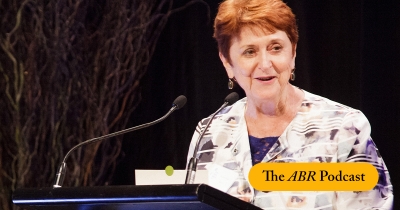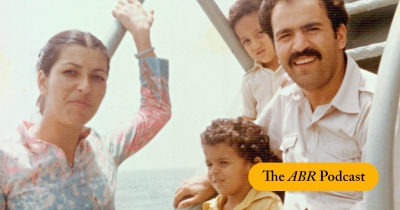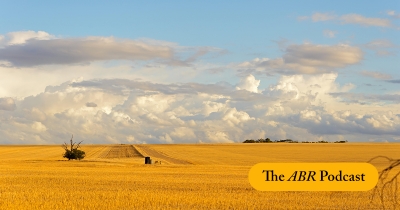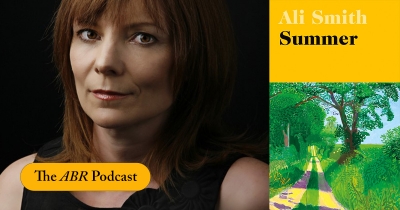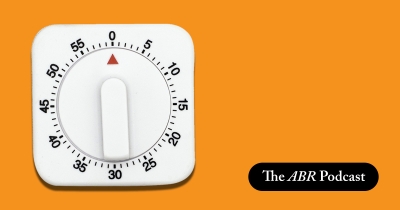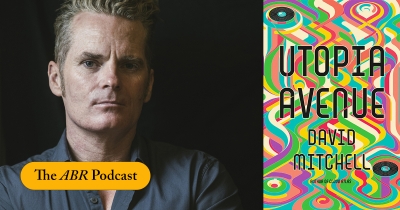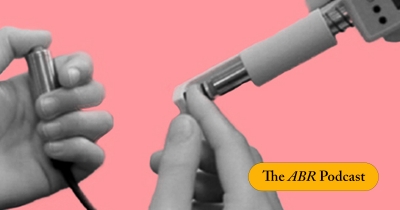Accessibility Tools
- Content scaling 100%
- Font size 100%
- Line height 100%
- Letter spacing 100%
Podcast
The ABR Podcast
Released every Thursday, the ABR podcast features our finest reviews, poetry, fiction, interviews, and commentary.
Subscribe via iTunes, Stitcher, Google, or Spotify, or search for ‘The ABR Podcast’ on your favourite podcast app.
Episode #187
‘why your hair is long & your stories short’
By Tracey Slaughter
With the publication of the May issue, ABR was delighted to announce the winner of the 2024 Calibre Essay Prize. Tracey Slaughter – from Aotearoa New Zealand – has become the first overseas writer to claim the Calibre Prize with her essay ‘why your hair is long & your stories short’. We are thrilled Tracey Slaughter could join the ABR Podcast to read her winning essay. Listen to Tracey Slaughter with ‘why your hair is long & your stories short’, published in the May issue of ABR.
Recent episodes:
In today's episode, Joshua Black reads his tribute to former Labor senator Susan Ryan, featured in our November issue. Ryan was a historic figure in Australian politics: she was the first woman from the ALP to serve in cabinet, and cemented her legacy with the Sex Discrimination Act (1984) – which prohibited sexual discrimination in the workplace. Here, Black recounts his interview with the pioneering politician only weeks before her death on 27 September 2020.
... (read more)In today's episode, Hessom Razavi – the ABR Behrouz Boochani Fellow – speaks to Peter Rose about his essay 'Failures of imagination: From Tehran’s prisons to Australia’s immigration detention centres', which appears in the November issue. Hessom's essay offers a powerful reflection on the experiences that led to his family fleeing Iran to escape political persecution. Navigating the 1979 Islamic Revolution, political rebellion, and tragic family disappearances, Razavi examines the similarities between Australia’s immigration detention centres and the political prison he visited as a boy – and contemplates how easily the detainees’ fate might have been his own.
... (read more)Is it possible to parse Australian writers by states and territories? In today's episode, Tony Hughes-d'Aeth – Chair of Australian Literature at the University of Western Australia – speculates about new ways of contemplating Australian writers through the lens of regionalism. As he writes in his upcoming essay 'Thinking in a regional accent: New ways of contemplating Australian writers': 'Yes, we are divided into states and territories, but are these anything other than lines on a map, drawn with a ruler and a set square, and the occasional river? The contrast between the political map of Australia and the now iconic AIATSIS map of Indigenous Australia graphically exposes the poverty of the Australian regional imagination and the essential irreality of our territorial demarcations. More particularly, for someone like me, is it right to conceive of Australia in terms of literary regions?'
... (read more)Whatever we might think of him, Donald Trump has proven to be one of the most transformative figures in recent history. In today's episode, Timothy J. Lynch talks to ABR Editor Peter Rose about three new and highly critical books on Trump: Too Much and Never Enough by Mary Trump, A Very Stable Genius by Philip Rucker and Carol Leonnig, and The Room Where It Happened by John Bolton. As Lynch writes in his review, 'There is a paradox that these books illustrate but cannot resolve: why is a man so chaotic, so reviled, so malignant also so transformational?’
... (read more)In this week’s ABR Podcast, Peter Rose speaks to Michael L. Ondaatje (Professor of History at the Australian Catholic University) about black American voters’ attitudes towards Donald Trump and the Republican Party. They also discuss recent startling developments in an already tumultuous presidential election.
Michael L. Ondaatje’s article ‘Black and Republican in the age of Trump’ is one of a series of commentaries funded by the Copyright Agency’s Cultural Fund. It appears in the October issue.
... (read more)In today's episode, Johanna Leggatt speaks to ABR Editor Peter Rose about growing disquiet about ‘cancel culture’, censorious voices on social media, and Twitter's threat to writers and journalists. Beginning with the recent case of Rachel Baxendale, a journalist at The Australian, who was subjected to much invective because of her persistent questions about the quarantine fiasco in Victoria, Leggatt laments the ‘routine trashing of reputations on Twitter’ and wonders why Twitter has ‘devolved into a channel for our most juvenile emotions’.
... (read more)In today's episode, Jack Callil speaks to ABR Patron's Fellow Felicity Plunkett about Ali Smith's Seasonal Quartet and her final instalment, Summer. As Plunkett writes in her October issue review, 'Smith's quartet is a work of splitting and mending, repair instead of despair.'
... (read more)In today's episode, C.J. Garrow reads his short story 'Egg Timer', which placed second in this year's ABR Elizabeth Jolley Short Story Prize. Mykaela Saunders was placed first for 'River Story', which you can also listen to here. CJ Garrow has been shortlisted for other international prizes, including the Fish Prize in Ireland and the George Garrett Fiction Prize in the United States. 'Egg Timer', his first piece of published fiction, explores pandemical times through the eyes of a child.
... (read more)In today's episode, author and critic James Bradley speaks to ABR's digital editor Jack Callil about David Mitchell's latest novel Utopia Avenue. Mitchell is perhaps best known for his 2004 work Cloud Atlas, a work of sprawling interconnected narratives. In a similar vein, Utopia Avenue traces the intricate lives of four band members during their ascent to fame during the bustle of the 1960s. Yet as James Bradley details, the book is less concerned with history or music then with its own 'metaphysical game'.
... (read more)The Calibre Essay Prize, now in its fourteenth year, goes on producing some of the finest longform essays from around the world. This year we received about 600 entries from 29 different countries. The overall prize went to Yves Rees for their essay 'Reading the Mess Backwards', which Yves reads in a recent podcast episode.
Placed second was 'The Dolorimeter' by Sydney-based poet and academic Kate Middleton. Kate's essay, which appears in the September issue of ABR, is a personal meditation on her experience with illness and dealing with the medical profession over many years.
... (read more)

